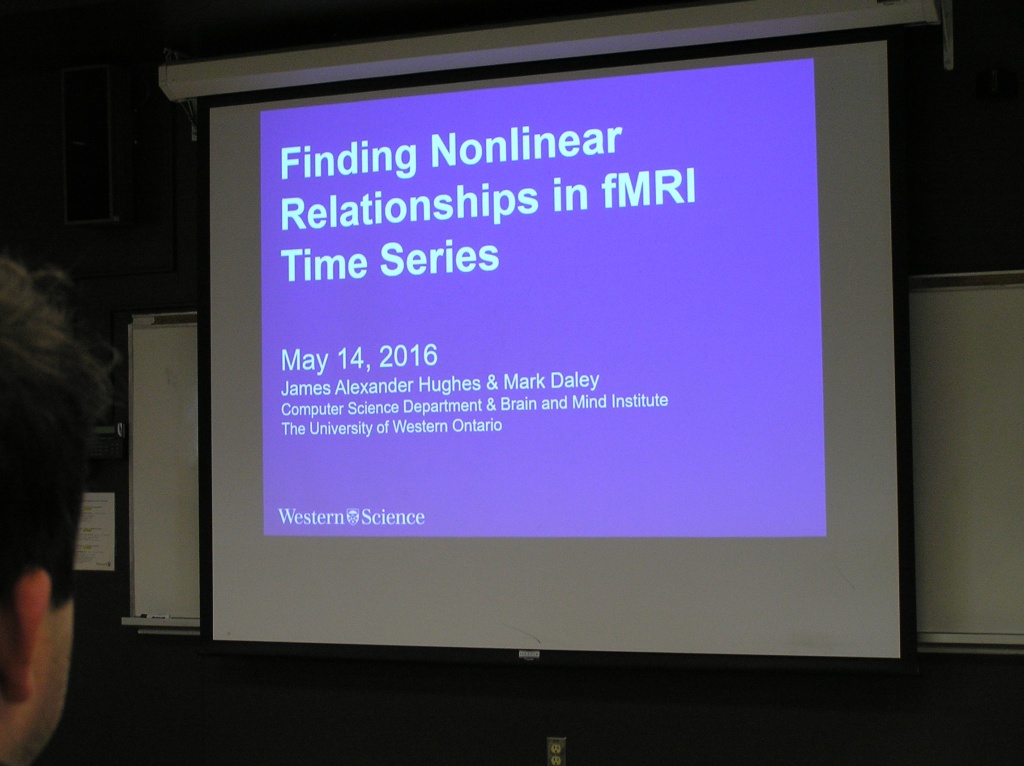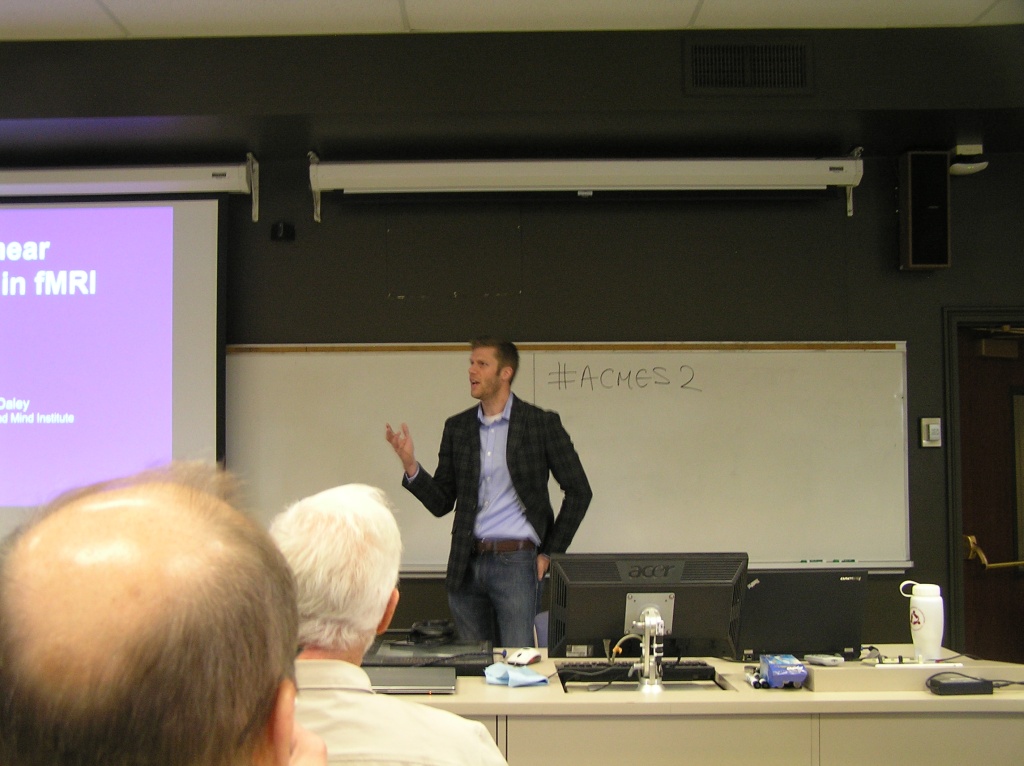James Hughes, Department of Computer Science, Western University
Title
The brain is an intrinsically nonlinear system, yet the dominant methods used to generate network
models of functional connectivity from fMRI data use linear methods. Although these approaches have
been used successfully, they are limited in that they can find only linear relations within a system
we know to be nonlinear.
This study employs a highly specialized genetic programming system which incorporates multiple
enhancements to perform symbolic regression, a sophisticated and computationally rigorous type of
regression analysis that searches for declarative mathematical expressions to describe relationships
in observed data with any provided set of basis functions.
Publicly available fMRI data from the Human Connectome Project were segmented into meaningful
regions of interest and highly nonlinear mathematical expressions describing functional connectivity
were generated. These nonlinear expressions exceed the explanatory power of traditional linear models
and allow for more accurate investigation of the underlying physiological connectivities.







